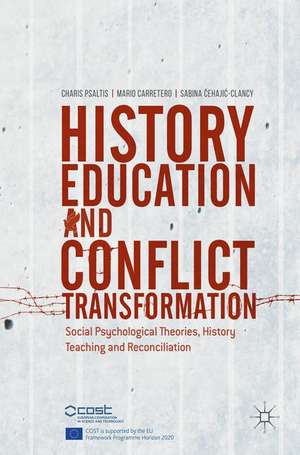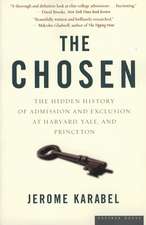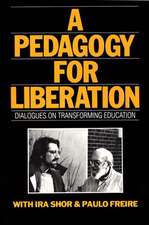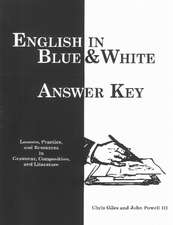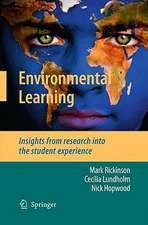History Education and Conflict Transformation: Social Psychological Theories, History Teaching and Reconciliation
Editat de Charis Psaltis, Mario Carretero, Sabina Čehajić-Clancyen Limba Engleză Hardback – 5 sep 2017
This volume discusses the effects, models and implications of history teaching in relation to conflict transformation and reconciliation from a social-psychological perspective. Bringing together a mix of established and young researchers and academics, from the fields of psychology, education, and history, the book provides an in-depth exploration of the role of historical narratives, history teaching, history textbooks and the work of civil society organizations in post-conflict societies undergoing reconciliation processes, and reflects on the state of the art at both the international and regional level. As well as dealing with the question of the ‘perpetrator-victim’ dynamic, the book also focuses on the particular context of transition in and out of cold war in Eastern Europe and the post-conflict settings of Northern Ireland, Israel and Palestine and Cyprus. It is also exploring the pedagogical classroom practices of history teaching and a critical comparison of various possible approaches taken in educational praxis. The book will make compelling reading for students and researchers of education, history, sociology, peace and conflict studies and psychology.
| Toate formatele și edițiile | Preț | Express |
|---|---|---|
| Paperback (1) | 200.21 lei 38-44 zile | |
| Springer – 9 aug 2018 | 200.21 lei 38-44 zile | |
| Hardback (1) | 152.52 lei 3-5 săpt. | +26.15 lei 10-14 zile |
| Springer International Publishing – 5 sep 2017 | 152.52 lei 3-5 săpt. | +26.15 lei 10-14 zile |
Preț: 152.52 lei
Nou
Puncte Express: 229
Preț estimativ în valută:
29.18€ • 30.55$ • 24.15£
29.18€ • 30.55$ • 24.15£
Carte disponibilă
Livrare economică 15-29 martie
Livrare express 04-08 martie pentru 36.14 lei
Preluare comenzi: 021 569.72.76
Specificații
ISBN-13: 9783319546803
ISBN-10: 3319546805
Pagini: 384
Ilustrații: XX, 384 p. 5 illus.
Dimensiuni: 148 x 210 x 28 mm
Greutate: 0.64 kg
Ediția:1st ed. 2017
Editura: Springer International Publishing
Colecția Palgrave Macmillan
Locul publicării:Cham, Switzerland
ISBN-10: 3319546805
Pagini: 384
Ilustrații: XX, 384 p. 5 illus.
Dimensiuni: 148 x 210 x 28 mm
Greutate: 0.64 kg
Ediția:1st ed. 2017
Editura: Springer International Publishing
Colecția Palgrave Macmillan
Locul publicării:Cham, Switzerland
Cuprins
Chapter 1. Conflict Transformation and History Teaching: Social Psychological Theory and Its Contributions; Charis Psaltis, Mario Carretero & Sabina Čehajić-Clancy.- PART I: Global and Regional Perspectives on Textbook Writing, Civil Society Organizations and Social Representations.- Chapter 2. History Textbook Writing in Post-Conflict Societies: From Battlefield to Site and Means of Conflict Transformation ; Denise Bentrovato.- Chapter 3. Confronting History and Reconciliation: A Review of Civil Society’s Approaches to Transforming Conflict Narratives; Rezarta Bilali & Rima Mahmut.- Chapter 4. Social Representations of the Past in Post-Conflict Societies: Adherence to Official Historical Narratives and Distrust through Heightened Threats; Charis Psaltis, Renata Franc, Anouk Smeekes, Maria Ioannou & Iris Žeželj.- PART II. Social Psychological Perspectives of Perpetrators and Victims.- Chapter 5. Power Struggles in the Remembering of Historical Intergroup Conflict: Hegemonic and Counter-Narratives about the Argentine “Conquest of the Desert”; Alicia Barreiro, Cecilia Wainryb & Mario Carretero.- Chapter 6. When History Teaching Turns into Parrhesia: The Case of Italian Colonial Crimes; Giovanna Leone.- Chapter 7. How to Teach about the Holocaust? Psychological Obstacles in Historical Education in Poland and Germany; Michal Bilewicz, Marta Witkowska, Silviana Stubig, Marta Beneda & Roland Imhoff.- PART III: Textbook and Teacher Perspectives in Post-Transition and Post-Conflict SocietiesChapter 8. History Teaching as ‘Propaganda’? Teachers’ Communication Styles in Post-Transition Societies; Katrin Kello & Wolfgang Wagner.- Chapter 9. A Clash of Communication? Intervening in Textbook Writing and Curriculum Development in Bosnia and Herzegovina after the War of 1992-1995; Falk Pingel.- Chapter 10. Textbook Narratives and Patriotism in Belarus; Anna Zadora.- PART IV: Pedagogical Approaches to History Teaching and Reconciliation.- Chapter 11. The Official, the Empathetic, and the Critical: Three Approaches to History Teaching and Reconciliation in Israel; Tsafrir Goldberg.- Chapter 12. The Potential Role of Social Psychology in History Teaching after Conflict: Exploring two History Education Projects Aiming to Improve Community Relations in Northern Ireland; Alan McCully & Jackie Reilly.- Chapter 13. Formal and Non-formal Reform Efforts of History Teaching in Cyprus: Openings and Closures for Dangerous Memories and Reconciliation Pedagogies; Michalinos Zembylas & Hakan Karahasan.- Chapter 14. Concluding Commentary: The Teaching of Recent and Violent Conflicts as a Challenge for History Education; Mario Carretero.
Notă biografică
Charis Psaltis is an associate professor in the department of Psychology at the University of Cyprus.
Mario Carretero is a professor in the department of Psychology at Universidad Autonoma Madrid, Spain.
Sabina Čehajić-Clancy is an associate professor in the department of Political Science and International Relations at Sarajevo School of Science and Technology, Bosnia and Herzegovina.
Mario Carretero is a professor in the department of Psychology at Universidad Autonoma Madrid, Spain.
Sabina Čehajić-Clancy is an associate professor in the department of Political Science and International Relations at Sarajevo School of Science and Technology, Bosnia and Herzegovina.
Textul de pe ultima copertă
This book is open access under a CC BY 4.0 license.
This volume discusses the effects, models and implications of history teaching in relation to conflict transformation and reconciliation from a social-psychological perspective. Bringing together a mix of established and young researchers and academics, from the fields of psychology, education, and history, the book provides an in-depth exploration of the role of historical narratives, history teaching, history textbooks and the work of civil society organizations in post-conflict societies undergoing reconciliation processes, and reflects on the state of the art at both the international and regional level. As well as dealing with the question of the ‘perpetrator-victim’ dynamic, the book also focuses on the particular context of transition in and out of cold war in Eastern Europe and the post-conflict settings of Northern Ireland, Israel and Palestine and Cyprus. It is also exploring the pedagogical classroom practices of history teaching and a critical comparison of various possible approaches taken in educational praxis. The book will make compelling reading for students and researchers of education, history, sociology, peace and conflict studies and psychology.
This volume discusses the effects, models and implications of history teaching in relation to conflict transformation and reconciliation from a social-psychological perspective. Bringing together a mix of established and young researchers and academics, from the fields of psychology, education, and history, the book provides an in-depth exploration of the role of historical narratives, history teaching, history textbooks and the work of civil society organizations in post-conflict societies undergoing reconciliation processes, and reflects on the state of the art at both the international and regional level. As well as dealing with the question of the ‘perpetrator-victim’ dynamic, the book also focuses on the particular context of transition in and out of cold war in Eastern Europe and the post-conflict settings of Northern Ireland, Israel and Palestine and Cyprus. It is also exploring the pedagogical classroom practices of history teaching and a critical comparison of various possible approaches taken in educational praxis. The book will make compelling reading for students and researchers of education, history, sociology, peace and conflict studies and psychology.
Caracteristici
Explores history teaching and education in relation to conflict transformation in post-conflict societies
Draws on social psychological theories to demonstrate the impact of history teaching on conflict transformation
Examines a global range of case studies
Includes supplementary material: sn.pub/extras
Draws on social psychological theories to demonstrate the impact of history teaching on conflict transformation
Examines a global range of case studies
Includes supplementary material: sn.pub/extras
